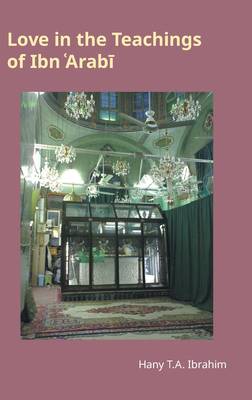
Bedankt voor het vertrouwen het afgelopen jaar! Om jou te bedanken bieden we GRATIS verzending (in België) aan op alles gedurende de hele maand januari.
- Afhalen na 1 uur in een winkel met voorraad
- In januari gratis thuislevering in België
- Ruim aanbod met 7 miljoen producten
Bedankt voor het vertrouwen het afgelopen jaar! Om jou te bedanken bieden we GRATIS verzending (in België) aan op alles gedurende de hele maand januari.
- Afhalen na 1 uur in een winkel met voorraad
- In januari gratis thuislevering in België
- Ruim aanbod met 7 miljoen producten
Zoeken
Omschrijving
This book aims to explore the theory of love in the writings of the Great Andalusian Sufi Sheikh, Muḥyī al-Dīn Ibn 'Arabī (558-638/1165-1240). It begins by examining Divine and human love as found in the works of many Sufi masters that preceded Ibn 'Arabī, and then turns to the views of Ibn 'Arabī himself. The Sufis from the early centuries of Islam (9th-10th) sometimes defined love as their "religion," by which they meant, their way to God. Ibn 'Arabī not only expanded on these earlier Sufi theories, but also detailed his own original insights. He openly declared the primacy of love over all else and argued that love is the dynamic force behind creation. The present study is focused primarily on outlining the importance of Divine love in Ibn 'Arabī's thought, which is accomplished through an in-depth reading and a close textual analysis of selected works on Divine love in several of his key works including: The Interpreter of Longings (Turjumān al-Ashwāq), The Ringstones of Wisdom (Fuṣūṣ al-Ḥikam), and The Meccan Openings (al-Futūḥāt al-Makkiyya). The approach taken in Love in the Teachings of Ibn 'Arabī demonstrates the centrality of love in Ibn 'Arabī's worldview. Additionally, the monograph offers certain interpretive keys to help unlock the meanings embedded in the imagery and symbolism of Ibn 'Arabī's unique language.
Specificaties
Betrokkenen
- Auteur(s):
- Uitgeverij:
Inhoud
- Aantal bladzijden:
- 220
- Taal:
- Engels
- Reeks:
Eigenschappen
- Productcode (EAN):
- 9781800502154
- Verschijningsdatum:
- 15/03/2023
- Uitvoering:
- Hardcover
- Formaat:
- Genaaid
- Afmetingen:
- 156 mm x 234 mm
- Gewicht:
- 449 g

Alleen bij Standaard Boekhandel
+ 322 punten op je klantenkaart van Standaard Boekhandel
Beoordelingen
We publiceren alleen reviews die voldoen aan de voorwaarden voor reviews. Bekijk onze voorwaarden voor reviews.









